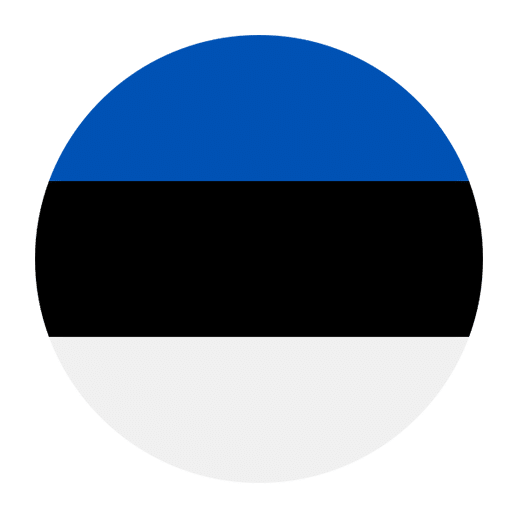Learning a new language can be an exciting yet challenging journey. For those delving into Estonian, understanding vocabulary related to body parts and functions is essential. These words form the foundation for everyday conversations, from describing ailments to engaging in casual chats about fitness. In this article, we will explore essential Estonian words for body parts and functions, providing you with a solid base to enhance your linguistic skills.
Basic Body Parts
Let’s start with some basic body parts. These are the words you will use frequently in various contexts:
– Pea – Head
– Juuksed – Hair
– Nägu – Face
– Kael – Neck
– Õlg – Shoulder
– Käsi – Arm
– Küünarnukk – Elbow
– Käelaba – Hand
– Sõrm – Finger
– Küüs – Nail
– Rind – Chest
– Kõht – Stomach
– Selg – Back
– Jalg – Leg
– Põlv – Knee
– Jalalaba – Foot
– Varvas – Toe
Facial Features
Understanding facial features can help you describe people accurately or understand descriptions in conversations and literature:
– Otsmik – Forehead
– Silmad – Eyes
– Kulmud – Eyebrows
– Ripsmed – Eyelashes
– Põsed – Cheeks
– Nina – Nose
– Huul – Lip
– Hammas – Tooth
– Keel – Tongue
– Lõug – Chin
– Kõrv – Ear
Internal Organs
Knowing the names of internal organs is crucial, especially when discussing health and medical issues:
– Süda – Heart
– Maag – Stomach (internal organ)
– Maks – Liver
– Kops – Lung
– Neer – Kidney
– Sool – Intestine
– Aju – Brain
– Veri – Blood
Body Functions
Understanding how to describe body functions can be incredibly useful in various scenarios, from visiting the doctor to discussing exercise routines:
– Hingama – To breathe
– Sööma – To eat
– Jooma – To drink
– Magama – To sleep
– Jooksma – To run
– Kõndima – To walk
– Istuma – To sit
– Seisma – To stand
– Hüppama – To jump
– Naerma – To laugh
– Nuttma – To cry
– Rääkima – To speak
– Kuulama – To listen
– Nägema – To see
Common Verbs Related to Health
When discussing health, these verbs can help you explain symptoms or understand advice from healthcare professionals:
– Valutama – To hurt
– Köha – To cough
– Aevastama – To sneeze
– Haigestuma – To fall ill
– Paranema – To recover
– Kontrollima – To check (as in a medical check-up)
– Ravima – To treat
Describing Pain and Discomfort
Knowing how to describe pain or discomfort can be crucial, especially in medical settings. Here are some useful phrases:
– Mul on valus – I am in pain
– Mul on peavalu – I have a headache
– Mul on kõhuvalu – I have a stomachache
– Mul on seljavalu – I have a backache
– Mul on kurguvalu – I have a sore throat
Symptoms
Describing symptoms accurately can help in diagnosing illnesses or understanding what someone else is experiencing:
– Palavik – Fever
– Peapööritus – Dizziness
– Iiveldus – Nausea
– Väsimus – Fatigue
– Külmavärinad – Chills
– Paistetus – Swelling
– Pearinglus – Lightheadedness
– Hingeldus – Shortness of breath
Medical Terms
If you ever find yourself in a medical situation, these terms will come in handy:
– Arst – Doctor
– Haigla – Hospital
– Apteek – Pharmacy
– Ravim – Medicine
– Retsept – Prescription
– Haigus – Illness
– Õde – Nurse
– Kiirabi – Ambulance
Exercise and Fitness
Discussing exercise and fitness routines can be a common topic in daily conversations. Here are some useful words:
– Harjutus – Exercise
– Treening – Training
– Jõusaal – Gym
– Jõutreening – Strength training
– Venitamine – Stretching
– Jooga – Yoga
– Jooksmine – Running
– Ujumine – Swimming
– Rattasõit – Cycling
Common Phrases in Fitness
When talking about fitness, these phrases can be quite useful:
– Mul on vaja treenida – I need to work out
– Kas sa käid jõusaalis? – Do you go to the gym?
– Ma teen joogat – I do yoga
– Ma armastan jooksmist – I love running
– Me peame venitusid tegema – We need to do stretches
Conclusion
Mastering the vocabulary for body parts and functions in Estonian is a significant step in becoming proficient in the language. Whether you are discussing health matters, describing someone’s appearance, or talking about your fitness routine, these words will be invaluable. Practice them regularly, use them in conversations, and soon, you will find yourself more comfortable and confident in your Estonian language journey. Happy learning!

